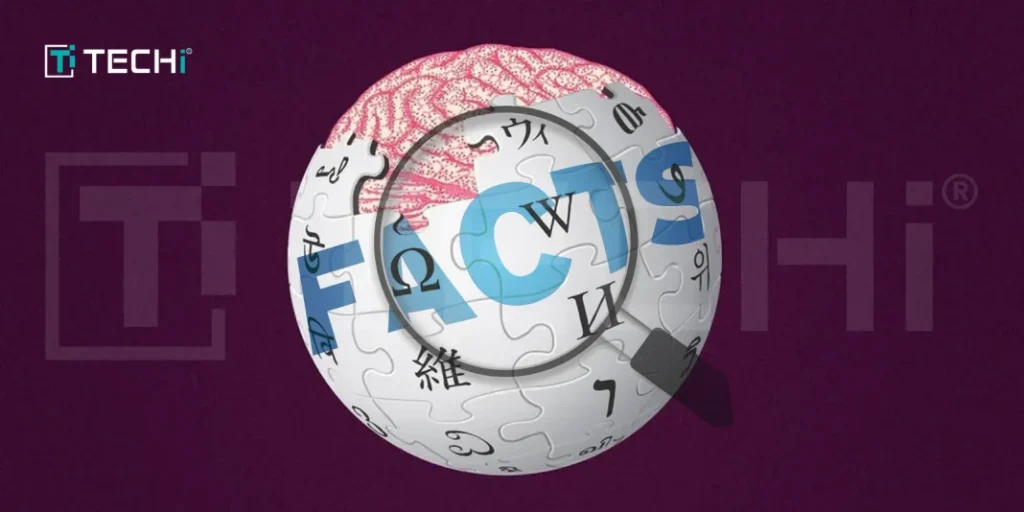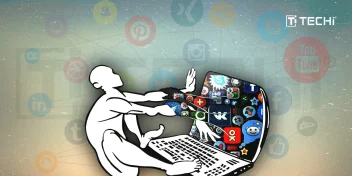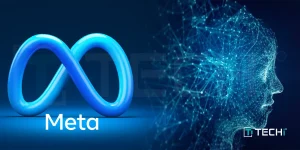A world where every question has an answer at your fingertips. Whether you are a student racing against a deadline, a teacher molding young minds, or anyone following a curious thought down the rabbit hole, Wikipedia is the way there. But really, it is not only for its scholars. Every day, millions use Wikipedia, from the trivia nuts to the finest professionals. He who rules the top ranks of Google search results reigns the audience like never before, solidifying Wikipedia’s status among the most-visited and most influential websites in the world.
With over 6 million English articles and more than 18 billion page views per month, Wikipedia is the largest and most influential online encyclopedia in the world. Available in over 300 languages, it serves as a go-to resource for students, educators, professionals, and curious minds alike. Its dominance in search engine results, often appearing in the top 5 Google searches, makes it one of the most visited websites globally. But beyond its popularity, Wikipedia has many fascinating aspects that make it truly unique
1. A Platform Built by the People, for the People
The exception of source encyclopedias is because, unlike any other encyclopedias, Wikipedia does not rely on scholars or experts to contribute and is born out of the crowd, which means anyone can edit it, add information, etc. This may be a thing that rings alarm bells, but Wikipedia has a large pool of editors within whose purview it constantly finds itself being monitored and fact-checked.
2. What Was Wikipedia’s Disruption?
The disruption of Wikipedia was as revolutionary as it came. With its launch in 2001, it destroyed the centuries-old model of encyclopedias. Before Wikipedia, encyclopedias such as Britannica would be prepared by small groups of experts, but Wikipedia opened the doors to anyone with an Internet hookup. This democratization of knowledge was transformative, making information available to anybody and everybody free of charge and in real time.
What set Wikipedia apart from it was its being open-source, letting millions of people edit and update its contents. It’s unlike any other resource. It is a resource that keeps changing and picking up new things almost daily. And that cooperative nature allowed knowledge to grow exponentially, with the contributions coming from all walks of life and expertise.
Wikipedia’s disruption changed not only the way knowledge is accessed but also the very notion of knowledge itself. By erasing the lines of authority, it allowed divergent opinions to become part of the conversation. By creating a user-driven, transparent platform, Wikipedia proved that whenever people work together, truly great things can emerge. This is a classic example of how the Internet can redefine entire industries and destroy orthodoxies.
- Wikipedia has subverted the traditional model of knowledge-sharing, letting anyone with an internet connection gain free and immediate access to information, thereby obliterating any barriers of exclusivity.
- Wikipedia enables real-time updates of content, ensuring that information remains fresh and valid, regardless of the topic, contrary to traditional encyclopedias, which require lengthy publication processes to revise.
- The open-source nature of Wikipedia means that it grows organically, being updated and modified through the contribution of millions of collaborators worldwide, thereby allowing the continuous growth of knowledge.
- In taking away the privileges of a chosen few experts, Wikipedia presents a democratized approach to information, giving individuals from myriad backgrounds the chance to shape and share knowledge.
- Wikipedia’s tracking of every edit and change is a guarantee of transparency and accountability, earning the credibility of the information by showing the pathway of how it has evolved over time.
3. Not Just Articles
Wikipedia is not just a collection of text articles; it has instead become an ecosystem of sister projects, including:
- Wikimedia Commons (containing a large repository of images, videos, and sounds for free use)
- Wiktionary (a multilingual dictionary)
- Wikiquote (an anthology of quotes)
- Wikivoyage (an open-source travel guide)
Wikimedia Commons
This collection of free-to-use sound files, videos, and photos can be viewed as a treasure chest. From old photographs to educational videos, Wikimedia Commons has countless media resources that are available for anyone to access, modify, or reuse. This becomes the website of choice for content creators, educators, and other happy individuals in search of rich media resources for their work all under Creative Commons licenses.
Wiktionary
This is not just some dictionary, it’s a multilingual powerhouse that goes above and beyond the definition. A continually evolving resource for definitions, translations, and in-depth explanations of words in all kinds of languages. It’s a collective tool that allows the user to view language through a global lens, helping everyone from language Learners to linguists marvel at the subtleties that a word can contain within itself and beyond himself.
Wikiquote
Have you ever searched for a quote and failed to remember who said it? Well, Wikiquote is a collection of all those memorable good quotes and more: it would have been wise to collect those spoken by historical or literary figures, quotes from films, and beyond. It’s more than a mere database of quotes-it is a living collection of words that inspire, evoke challenges, and provoke thought, easily searchable by theme, author, or context.
Wikivoyage
This would become a dynamic, global travel guide that would always be current and trustworthy; it was produced by fellow travellers. This was Wikivoyage-a free open-source travel guide with everything from practical advice to a few hidden gems in cities around the world. Whether you’re trying to piece together your next trip or something a little further away into the dream realm, this is a real, crowd-sourced knowledge new-age traveller’s friend.
A Nonprofit Giant
It ranks amongst the top most visited sites across the globe. But, it is a nonprofit site, managed by the Wikimedia Foundation, as has been mentioned earlier. It is not at all funded by any advertisement fees from commercial websites but is sustained by donations that end users or some philanthropists make for the cause of knowledge being free.
A Constantly Evolving Knowledge Hub
As years pass by, changes in a traditional printed encyclopedia will take years. For example, when it’s updated due to significant global events, the pages on Wikipedia are updated within minutes, making it one of the fastest forms of information, live editing. This model makes it readily available for users in terms of immediately accessing the most up-to-date knowledge.
4. Wikipedia’s Effects on the Virtual Society
Many websites and AI models-including search engines, Google itself-actually use Wikipedia’s content to answer queries-help such as serve as a primary source for digital learning, especially concerning its structured format and credibility checks from it, as well as the breadth of knowledge the repository contains.
5. Not Without Controversies
Trustworthy, but Wikipedia is not without its controversies. Apart from criticism of bias in edit work by some individuals, its vandalism and misinformation have all become serious issues. Some of its pages have been targeted for malicious edits; one of the reasons for setting such a hard restriction as regards monitoring those high-profile topics.
6. Wikipedia’s Growth Over the Years
Wikipedia is the largest encyclopedia on the Internet and has grown tremendously considering content, access, and influence. The years 2012 to 2025 will see an expansion of its database, fine-tuning of fact-checking methods, and the strengthening of its role as a primary choice of knowledge.
Strengthening Its Foundation: 2012
Over 4 million English articles provided a great base of knowledge for Wikipedia. With 15 billion page views a month, Wikipedia was gradually becoming an important interface. A rise in contributions by volunteers and expert editors has improved the integrity of its content.
Expanding the Knowledge Ecosystem:2020
- Crossing such a landmark as having more than 6 million articles also put the English Wikipedia on the map of digital information.
- 18 billion was the number of views in any one month that had peaked, thus showing a growing international dependence on it.
- This was the pre-access era when automation and AI were utilized in the verification and moderation of content.
7. Globalization and Expansion:
2001 (forthright beginning and infancy):
Wikipedia was launched on the 15th of January in the year 2001 by Jimmy Wales and Larry Sanger, but only in English – with the ultimate aim of developing a free, open, and editable environment for anyone interested in the contribution. Although initiation might have been little, it soon outgrew the English world.
2003-2004 (Flourishing the Different Languages):
Wikipedia expanded into a repertoire of languages. By the end of that very year, versions of Wikipedia in more than 20 languages, among others German, French, and Dutch existed. It is a step that was pivotal in enabling Wikipedia to reach much wider and more varied audiences worldwide. By 2004, Wikipedia had already topped the million-article mark in multiple languages.
2005-2007 (Rising Number of Non-English Wikipedia):
Non-English versions of Wikipedia gained considerable momentum. By 2007, the German version of Wikipedia was among the largest language editions, and it was available in over 200 languages, from Arabic to Zulu, without much thought to the language.
The Diversification of Geography, 2008-2011:
As Wikipedia grew wings across the globe, so did the contributions from all corners of the world. Many of the language editions became localized. In some areas, such as India or China, Wikipedia has become a major source of education. This was not so in restrictive nations, such as China, where the website was virtually blocked as local versions emerged.
2014: Outline Global Expansion and Improve Usability
Wikipedia reaches a significant milestone in access as Wikipedia Zero comes to be available with free knowledge in over 60 countries. Recently in June, the launch of the Media Viewer makes it easier for people to interact with images. The October additions to the VisualEditor then make a smoother editing experience possible for a wider audience.
2015: Expanding Content and Enhancing Policy
Its highest point to date came in January when it surpassed 35 million articles. By May, the progress of the Wikidata project took off and began to improve the quality of structured data in all Wikimedia projects. Then, in September, stricter policies against paid-editing violations were introduced within Wikipedia to strengthen the commitment of the principal content to integrity.
2016: Celebrating a Legacy while Embracing AI
Wikipedia had its 15th birthday in February, much as it has a stamp on the map of knowledge-sharing all over the globe. With July came an AI-based vandalism detection program that worked to keep our information accurate. By November, the mobile editing experience was also improved, making contributions more convenient to everyone worldwide.
2017: Improving User Experience and Community Participation
Page Previews, which allowed users to hover their cursor over a link to get a speedy summary of an article, opened in April. In August, the world witnessed global Edit-a-thons, encouraging participation and extension of content. By December, the multilingual editing support received a boost, opening up Wikipedia to many contributors with different spoken languages.
2018: Milestones and Compliance with Strengthening
March 2018 marked the milestone in reaching 40 million articles, making Wikipedia the world’s largest encyclopedia. Improved the user interface in June for mobile users to make both navigating and editing more intuitive. October updated important user-data privacy protection features and compliance with GDPR.
2019: Capitalizing on AI and Making Stronger Community Policy
In January, AI provides users with content recommendations relevant to them, so they can find interesting articles more efficiently. May saw the proposal of a redesign of Wikipedia’s desktop interface to bring it into the modern age. By September joined up much stronger anti-harassment enforcement now a much safer and inclusive environment for editors.
2020: A Year of Great Significance Against Global Background
At the time when the COVID-19 pandemic emerged, Wikipedia became a major point for sound information. Starting in March, it began tracking data related to the pandemic, which by June had registered record-breaking traffic. In November, a proposal of the Universal Code for Conduct (UCoC) was moved forward to set ethical standards for contributors across the globe.
2021: Strengthening Accountability with an Ethical Framework and Fact-Checking
The month of February in which the Universal Code of Conduct was adopted by Wikipedia was also the same month in which accountability of materials was given a firmer basis. In July, AI fact-checking tools were introduced, which cross-referenced information and gave credibility. Wikipedia has now reached 50 million articles by December, proving itself to be an ever-mightier presence.
2022: Developing Multilingual Content and Educational Alliances
Progress on the Abstract Wikipedia project was significant in April to promote effective knowledge representation across languages. Increased educational partnerships, making Wikipedia an integral player in academia, came in August. By November, the reading experience was enriched through more integrated multimedia content.
2023: AI Innovations with Proliferating User Indulgent Technologies
Within January, making news was the presentation of AI-generated suggestions of articles, enabling faster content generation. In May, when Wikipedia added mentorship programs, it made itself an even more inclusive community of editors. In October, personalization enhancements newly appended to interactivity with Wikipedia’s vast information repository were implemented.
2024: More English Content and Academic Linkage
March witnessed Wikipedia surpassing the twenty million marks on the English articles side. In July, better editing tools were launched to enhance user access. Established by November are deeper collaborations with universities, integrating Wikipedia further into academic research.
2025: Pressing Into AI and Diversity for Languages
February saw the introduction of new accessibility features for users with disabilities to ensure broader inclusion. By June, the launch of an AI-based mobile assistant ushered in a new era of user interaction with Wikipedia. October will feature a significant increase in the volume of indigenous-language content offered on the platform, protecting and amplifying cultural heritage.
8. Regional Influence and Challenges:
Latin America or Asia: It has been quite important in the majority of Latin American continents with special emphasis laid on Brazil and Argentina. Spanish and Portuguese editions of Wikipedia were among the largest non-English editions. In these terms, some major countries include India, Indonesia, and the Philippines, as they all have very recently turned towards Wikipedia for information purposes for students and professionals looking out for data in their languages that are free and reliable.
Middle East and North Africa:
The Arabic version of Wikipedia began to grow in the late 2000s, though it still faces challenges due to censorship in some countries in the region. Despite this, Wikipedia remains a valuable resource for the Arabic-speaking population.
Internet penetration, traditionally, has been low on a continental scale in Africa; through initiatives like Wikipedia Zero (offering free access to Wikipedia for mobile users in developing countries), the reach of Wikipedia has blossomed in African countries, particularly South Africa and Nigeria. Wikipedia, in some parts, has provided information that is neither conveniently available in schools nor libraries.
9. Global Issues Still Ongoing:
Wikipedia encounters restrictions in China, Russia, and Turkey by the government. In these places, access to Wikipedia is highly limited, or some articles just face censorship. This led to a fuss concerning the freedom of the internet and the role of governments in controlling what flows through information blockades.
10. Gender and Geographic Representation:
Wikipedia was also much criticized for under-representation in particular geographic areas and lack of perspective from certain genders. Many articles, especially in the English version, are said to have overemphasised Western-centric subjects. Attempts have been made to reach out to the contributions of more global south sites and lesser represented genders, but the imbalance continues.
11. Local Initiatives and Educational Partnerships:
Geographic history has also included collaborative work between Wikipedia and educational institutions around the world to engage students in making contributions. This has mainly happened in countries like the US, India, and the UK, in which universities and research institutions have collaborated with Wikipedia on many initiatives.
12. Incredible Growth Stats
- More than 64,000,000 Articles
- More than 127,843 Monthly active user
- More than 62,568,098 of All type of pages
- More than 1.26 billion pages edit since found (18 edit per second)
- More than 847 administrators, with 459 considered active,
- More than 48.7 million registered user accounts.
- More than 270,000 images
13. Wikipedia Content by Subject
- Biography and persons: 15%
- Geography and places: 10%
- Culture and Art: 30%
- Society and Social Sciences: 20%
- History and Events: 10%
- Natural and Physical sciences: 15%
- Thoughts and Philosophy: 5-10%
- Mathematics and logics: 5-10%
- Health: 5-10%
- Technology and Applied Sciences: 10-15%
- Religious and belief System: 5-10%
14. Top 10 largest Wikipedias
As of February 2025, the ten largest Wikipedia editions by number of articles are:
- English Wikipedia: 6,955,880 articles
- Cebuano Wikipedia: 6,116,828 articles
- German Wikipedia: 2,985,526 articles
- Swedish Wikipedia: 2,562,340 articles
- French Wikipedia: 2,400,000 articles
- Dutch Wikipedia: 2,100,000 articles
- Russian Wikipedia: 1,800,000 articles
- Italian Wikipedia: 1,700,000 articles
- Spanish Wikipedia: 1,600,000 articles
- Polish Wikipedia: 1,500,000 articles
All language editions combined contain more than 55 million articles across 309 languages, Articles.
15. Fascinating Wikipedia Facts You Didn’t Know!
1. Global Website Ranking
Wikipedia.org is ranked #8 globally among all websites, with approximately 7.09 billion monthly visits. It remains one of the most visited knowledge platforms worldwide.
2. Content for Children
Wikipedia offers the Simple English Wikipedia, designed to be more accessible for children and individuals with learning disabilities to access simplified content.
3. Contribution Demographics
As of 2023, approximately 87% of Wikipedia contributors are male, with 13% identifying as female or non-binary. Highlighting a gender gap in contributions.
4. Book Creation Feature
Wikipedia allows users to compile selected articles into a book format, which can be downloaded or ordered as printed copies
5. Films About Wikipedia
Several documentaries explore Wikipedia’s impact, including “Truth in Numbers? Everything, According to Wikipedia” and “The Wikipedia Story”. focusing on its global impact.
6. Wikipedia as a dictionary
Wikipedia is a portmanteau of “wiki” (quick in Hawaiian) and “encyclopedia”. It functions as a free, multilingual dictionary alongside its encyclopedia.
7. Wikipedia’s Music Theme
Wikipedia has an official theme song known as “Hotel Wikipedia”, a parody of Hotel California, celebrating its open-edit culture.
8. Explicit Content & Censorship
Wikipedia maintains a list of films that frequently use the word “F*ck”, serving as a resource for media studies and censorship discussions.
16. Wikimedia’s Bold Vision for 2025 & Beyond
Wikimedia’s 7 Most Important Plans for 2025
- Expanding Free Knowledge Access – Strengthening efforts like Wikipedia Zero to provide free knowledge in underserved regions.
- Enhancing AI & Automation – Integrating AI-powered tools for content moderation, fact-checking, and automatic translations.
- Promoting Knowledge Equity – Supporting underrepresented languages and cultures, ensuring diverse knowledge representation.
- Strengthening Wikimedia Commons – Improving media contributions, licensing policies, and accessibility of free images, videos, and audio.
- Improving Community Support – Enhancing editor retention, mentorship programs, and anti-harassment tools to create a safer community.
- Advancing Sustainability Initiatives – Reducing the environmental footprint of Wikimedia’s infrastructure through sustainable hosting solutions.
- Deepening Educational Partnerships – Expanding collaborations with universities, research institutions, and schools to improve fact-based contributions.
17. The Future of Wikipedia: 2025
The projected English Wikipedia article count should be nearly 7 million, with thousands more in different languages. AI and good fact-checking mechanisms will augment content credibility and shred misinformation. Using modern technology, such as voice search with AI models, will enable knowledge accessibility.
Resources:
About Wikipedia: https://en.wikipedia.org/wiki/Wikipedia:About
History of Wikipedia: https://en.wikipedia.org/wiki/History_of_Wikipedia
Story of Wikipedia: https://wikimediafoundation.org/wiki/Story_of_Wikipedia





